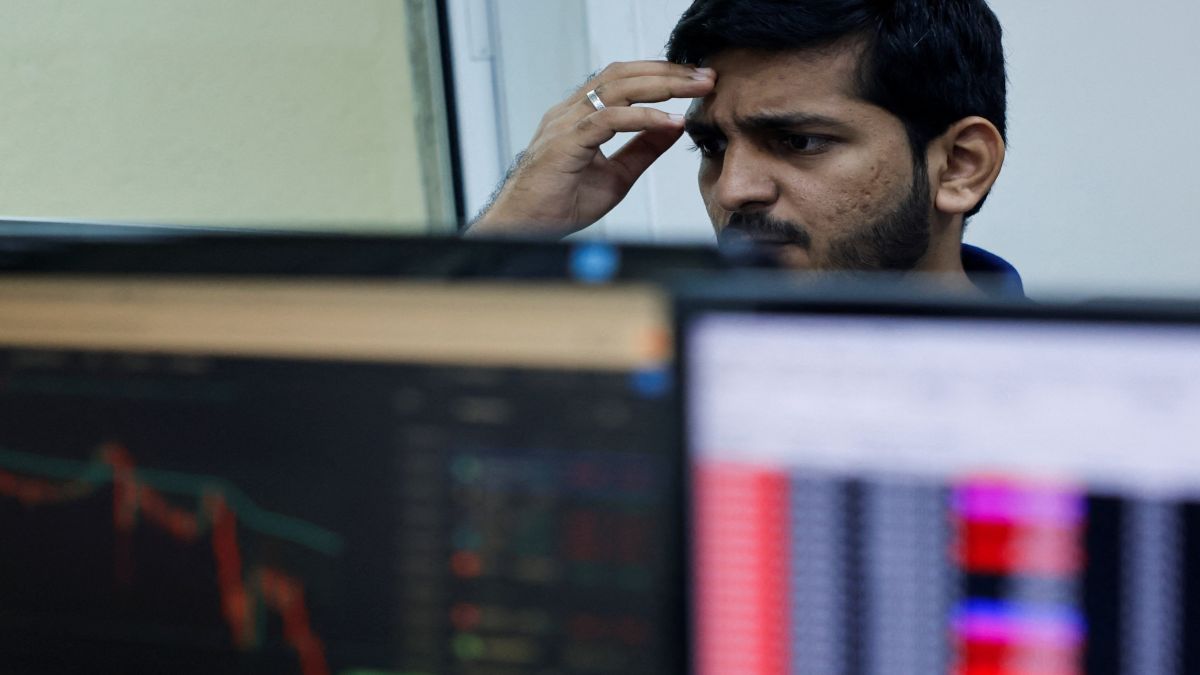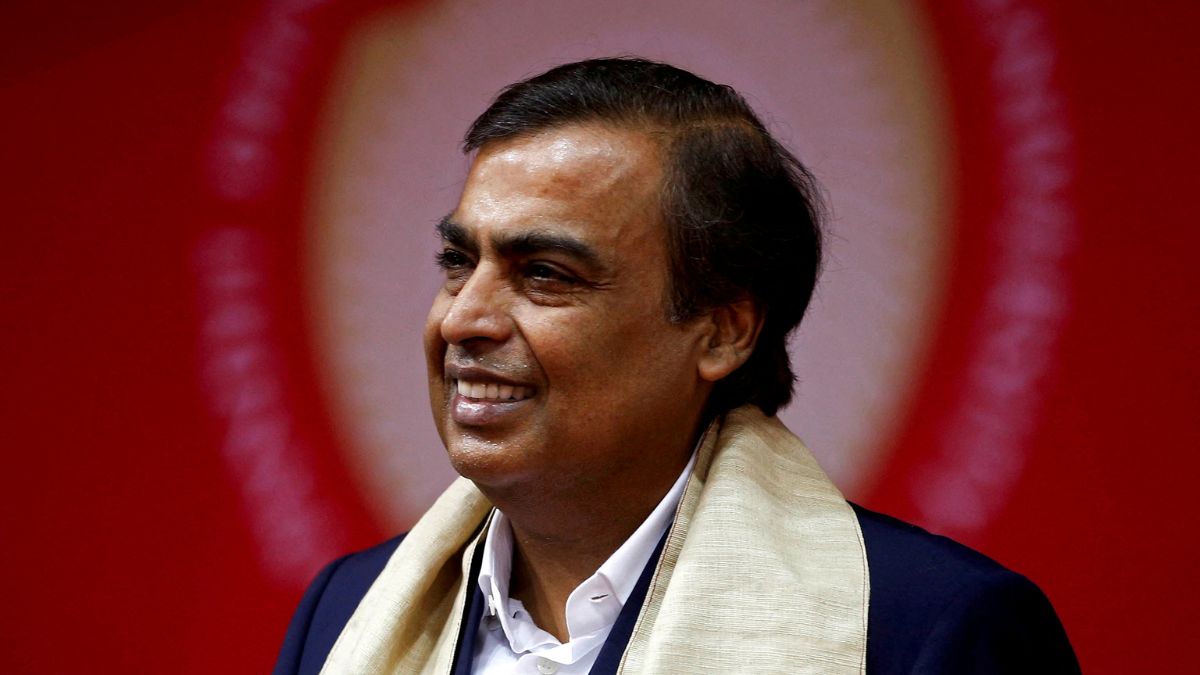The Indian stock market slumped over 1,000 points in the afternoon session as Finance Minister Nirmala Sitharaman unveiled the Union Budget 2024. While the Sensex and Nifty both recovered since then, it is reported that investor wealth fell by Rs 8.85 lakh crore. But what led to this drastic tumble? read more
)
A broker reacts as he trades at his computer terminal inside a stock brokerage firm in Mumbai, India on the day of the Union Budget. Reuters
Dalal Street saw a bloodbath on Tuesday as Finance Minister Nirmala Sitharaman unveiled the Union Budget in Parliament. Both major benchmarks, the Sensex and Nifty, experienced significant losses, leaving investors concerned.
But why is it that the Indian stock market saw such a crash? How much did people lose? We take a closer look at all this and get you the answers.
How badly did the market fall?
As Nirmala Sitharaman unveiled the budget in the Lok Sabha today, the Sensex turned negative and in the afternoon session plunged 1,266.17 points to 79,235.91. The National Stock Exchange’s Nifty 50 fell 435.05 points to 24,074.2.
Both the indices recovered later, with NDTV reporting that the Sensex and Nifty are trading flat now.
As per a Business Today report, this led to investor wealth falling by Rs 8.85 lakh crore to Rs 439.46 lakh crore compared to a valuation of Rs 448.32 lakh crore recorded in the previous session. Stocks such as Reliance Industries, Larsen & Toubro, HDFC Bank, ICICI Bank, State Bank of India, Bajaj Finance, Bharti Airtel, and PowerGrid all contributed to the fall today.
Furthermore, it was reported that as many as 31 stocks hit a 52-week low today. Reports said that a total of 2,971 stocks fell today while only 811 held on to their morning performance.
But, what caused this crash?
The primary reason for this fall at the stock market was Finance Minister Nirmala Sitharaman’s announcement of increasing taxes on capital gains. She hiked the long-term capital gains (LTCG) tax to 12.5 per cent from 10 per cent, while short-term capital gains (STCG) tax on some assets would be 20 per cent.
As per a News18 report, what this means is if you sell listed securities such as equity shares and units of equity-oriented mutual funds (where equity exposure is above 65 per cent of the assets) before a year, then you will be charged short-term capital gains (STCG) tax at 15 per cent.
It’s important to note here that the LTCG tax exemption limit has also been raised to Rs 1.25 lakh from Rs 1 lakh.
Kirang Gandhi, personal financial mentor, was quoted as telling News18, “The 2024 Budget has increased the short-term capital gains (STCG) tax to 20 per cent and the long-term capital gains (LTCG) tax to 12.5 per cent. This caused some market instability as investors react to the higher taxes. While the goal is to raise more revenue, these changes might discourage short-term trading and make long-term investments more attractive, potentially changing how the market behaves in the coming months.”
Sandeep Chilana, managing partner, CCLaw, also was of the same opinion. He told India Today: “The FM has proposed an increase in the rate of tax on both short term and long term gains from certain financial assets. In the past few years, substantial investments have been made by retail investors in financial markets. Change in rates of tax will likely have a significant impact on the sentiments of retail investors with respect to consistency in tax policy and doubt that even higher taxes may be imposed in future.”
Shripal Shah, MD and CEO, Kotak Securities, Mumbai, also told Reuters: “The increase in the tax rate on long-term capital gains and short-term capital gains on equity, along with the increase in securities transaction tax (STT) on futures and options, are aimed at moderating currently heightened activity levels and fostering a more sustainable pace of growth in the stock market."
“We anticipate a small period of adjustment as the market adapts to these new tax measures, but this will ultimately contribute to a sustainable investment landscape with balanced and orderly growth of the capital market.”
But this wasn’t the only reason for the markets to dip so significantly.
Finance Minister Nirmala Sitharaman also increased the rate of securities transaction tax (STT) on futures and options (F&O) trade. “It is proposed to increase the rates of STT on the sale of an option in securities from 0.0625 per cent to 0.1 per cent of the option premium, and on sale of a futures in securities from 0.0125 per cent to 0.02 per cent of the price at which such futures are traded,” she said. The STT is a direct tax levied on purchase and sale of securities that are listed on stock exchanges.
The Indian Express notes that this change in STT rates on F&O comes as a surge in the segment has worried Securities and Exchange Board of India (SEBI) and the Reserve Bank of India.
Gaurav Dua, head of capital market strategy, Sharekhan, speaking to Reuters said that the change in capital gains tax and hike in the securities transaction tax has dented the sentiment in the market, though the Budget was positive from boosting consumption and focusing on capex.”
Other reasons for the stock market bloodbath is the tax on buyback of shares. “I propose to tax income received on the buyback of shares in the hands of the recipient,” Nirmala Sitharaman said in her Budget 2024 speech. Currently, shareholders are exempt from any income tax on the income from the buyback of shares.
With inputs from agencies

 1 month ago
26
1 month ago
26
)
)
)
)
)
)
)
)
)
)
)
)
)
)
)
)
)
)
)
)
)
)
)
 English (US) ·
English (US) ·